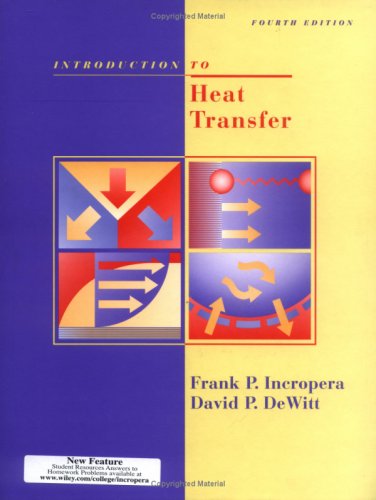The de facto standard text for heat transfer - noted for its readability, comprehensiveness and relevancy. Now revised to include clarified learning objectives, chapter summaries and many new problems. The fourth edition, like previous editions, continues to support four student learning objectives, desired attributes of any first course in heat transfer:
- Learn the meaning of the terminology and physical principles of heat transfer delineate pertinent transport phenomena for any process
The new standard for mastering heat transfer Respected for its readability, comprehensiveness, and relevance, Incropera and DeWitt’s text is the recognized standard for learning heat transfer. This text combines detailed coverage with the resources students need to meet their objectives. Its rigorous and systematic problem-solving methodology is filled with examples and problems that reveal the richness and beauty of the discipline.
This new 5th Edition introduces new coauthors Ted Bergman and Adrienne Lavine, who bring their record of success in teaching heat transfer and active involvement with research in the field to the text.
New Features
- Expanded coverage of areas of recent interest in heat transfer, including fuel cells and alternative energy devices, electronics cooling, micro-scale heat transfer, and biological as well as bioheat transfer. New homework problems are included for each area.
- New material on two-phase heat transfer and enhanced internal forced convection.
- Introduction to the concepts of nano-scale transport and unified treatment of transient conduction.
- New, revised, and updated problems and examples.
Model, solve, and explore heat transfer problems
Interactive Heat Transfer and Finite Element Heat Transfer software with User’s Guide CD and print booklet, ISBN: 0-471-76115-X
Completely updated with a modern graphical user interface and better graphing tools, Interactive Heat Transfer (IHT) software will help you learn how to build thermal models, solve specific conditions, and explore the effects of multiple parameter variations. IHT is now capable of solving 300+ equations. The Finite Element Heat Transfer software enhances capabilities for treating steady-state and transient one- and two-dimensional conduction problems.
